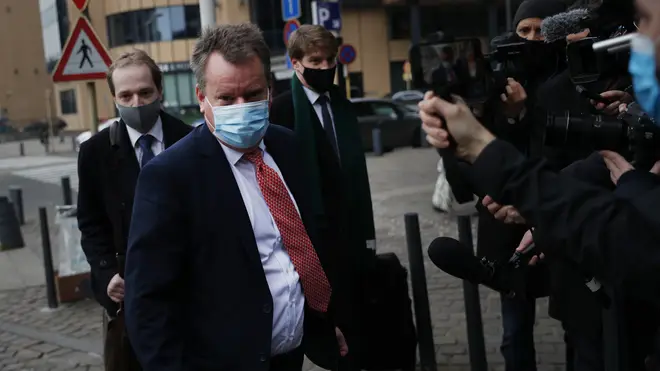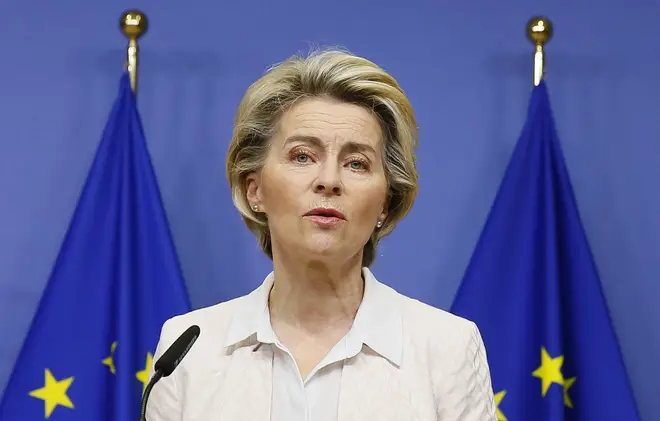
Ian Payne 4am - 7am
6 December 2020, 22:17 | Updated: 6 December 2020, 22:58

Mixed reports from EU and UK officials have left the public confused about the state of Brexit talks as both sides are yet to strike a deal.
On Sunday evening it was reported that a "major breakthrough" on fishing rights had occurred, with both sides reaching an agreement that had been all but signed off.
But moments later the UK Government told reporters the EU was "spinning" the situation and that no such breakthrough had occurred.
Read more: David Frost arrives in Brussels for last ditch Brexit talks
Read more: Controversial Brexit legislation to return with trade talks on knife-edge
EU sources persist that "significant progress" had been made on Sunday after a brief pause in talks on Friday and Saturday.
A Government source said: "There's been no breakthrough on fish. Nothing new has been achieved on this today."
Three major issues remain in the negotiations - fishing, the level playing field and governance - before a deal can be signed.

David Frost arrives in Brussels for crunch Brexit talks
The UK claims the EU is not respecting the country's independence vote by suggesting it should continue to follow EU rules on giving financial aid to companies and EU fishermen working in British waters.
The European reportedly wants the power to impose tariffs on the UK should it decide to ignore updates to EU rules.
Read more: Boris Johnson and EU Chief hold crisis talks after Brexit deadlock
Arriving in Brussels for last-ditch talks on Sunday morning, UK chief negotiator David Frost said he is "looking forward to meeting European colleagues later on".
The two teams met after a brief pause and a phone call between Boris Johnson and European Commission president Ursula von der Leyen, where they agreed that a "further effort" should be made to come to an agreement.

George Eustice confirms food prices will rise if no deal reached
Ahead of the meeting, however British sources warned there was no guarantee they would succeed.
"This is the final throw of the dice," said one UK source close to the negotiations.
Read more: Chances of post-Brexit trade deal with EU 'receding', UK warns
"There is a fair deal to be done that works for both sides, but this will only happen if the EU is willing to respect the fundamental principles of sovereignty and control."
Speaking on LBC's Swarbrick on Sunday show, environment secretary George Eustice confirmed that food prices would rise if Britain was to leave without a deal on January 31.
Irish premier Micheal Martin, who has been closely following the talks process, warned that they remained on a "knife edge".

He said there appeared to be a "very challenging issue" still to be resolved over the so-called "level playing field" rules on fair competition.
"My gut instinct is that it is 50-50 right now. Things are on a knife-edge and it is serious. I don't think one can be overly optimistic about a resolution emerging," he told reporters.
If there is no deal by the end of the Brexit transition period at the end of the month, then Britain will leave the single market and the customs union and begin trading with the EU on World Trade Organisation terms, with the imposition of tariffs and quotas.
Read more: Minister tells LBC Brexit negotiations 'could be extended beyond Wednesday cutoff'
Before then it has to be ratified by both Houses of Parliament in the UK and the European parliament as well as signed off by the EU leaders.
There had been hopes that could happen at a two-day summit in the Belgian capital starting on Thursday - their final scheduled gathering of the year - but the timetable is looking increasingly tight.